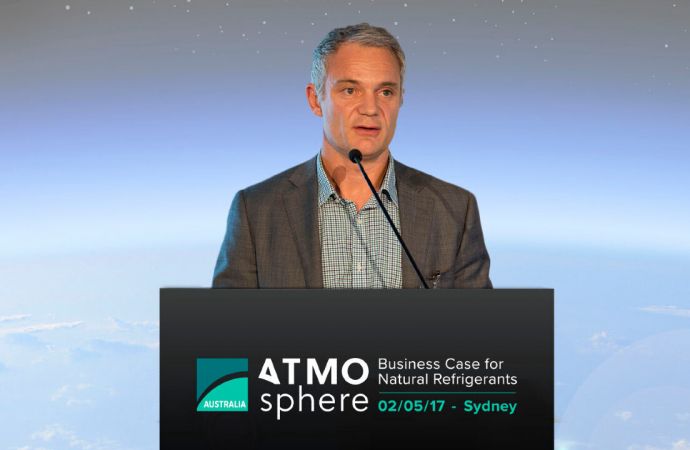The company cites its cold-storage shipping port installation.

Matthew Darby, Managing Director, EcoChill
EcoChill, an Auckland, New Zealand-based contractor, touts propane (R290) as a viable refrigerant for industrial refrigeration systems, citing its cold-storage installation at a commercial shipping port, Eastland Port, located in Gisborne, New Zealand.
Industrial installations usually favor ammonia or CO2 as a refrigerant. However, “hydrocarbons are fantastic for medium-temperature applications” such as the shipping port, said Matthew Darby, Managing Director and Founder of EcoChill.
He discussed propane refrigeration during a contractor’s insights presentation at ATMOsphere Australia, an online event hosted by shecco (publisher of this website), on July 28.
The port’s original cold storage facility was an ammonia (NH3) installation in an 84m long by 31m high (275.59ft by 101.70ft) building. EcoChill converted it into two separate facilities, each about 40m (137.79ft) long and 31m high, according to Darby.
Each facility, used to pre-cool fruit, such as export-grade kiwis, has an operating temperature range between 0°C (32°F) and 5°C (41°F).
The site features two glycol chiller packs (one per facility) and 24 evaporators (12 per facility) . Each chiller pack has four circuits, with 14kg (31lbs) of R290 per circuit, for a combined charge of 112kg (247lbs) according to Darby. The total cooling capacity is 1.1MW (313TR).
CaaS model
Eastland Port, considered New Zealand’s largest hydrocarbon installation, began operating in early 2020.
The two cold storage facilities run independently, allowing the port to charge clients “for units of energy used and units of cooling done” on a cooling-as-service (CaaS)-style model, said Darby.
Each storage facility has “four individual zones so we can control the temperature, humidity, airflow,” and report “all the information back to the control system” used to bill tenants.
In addition, EcoChill installed a Resource Data Management (RDM) control system, for which EcoChill wrote software. “It provides a huge amount of data,” according to Darby.
This data gives feedback allowing users to optimize storage conditions and maximize the energy performance, as well as ensure that the site meets New Zealand’s “tight compliance and reporting requirements” around hydrocarbons, said Darby.
It provides a huge amount of data."
– Matthew Darby, EcoChill
Related stories



